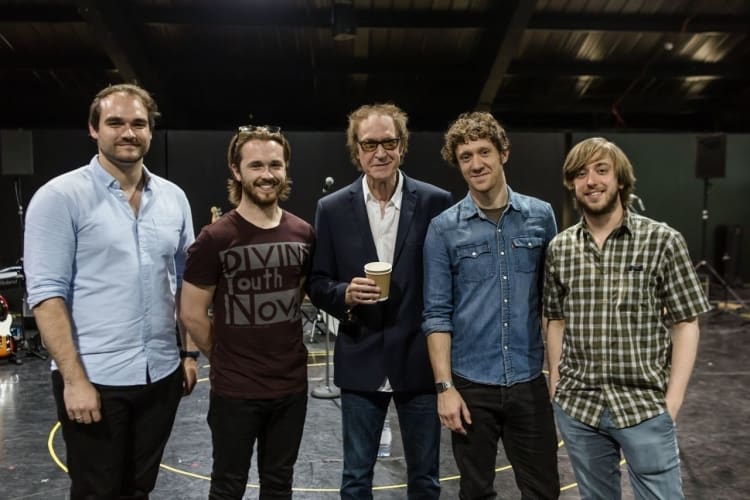Rolling your life story up into a bankable rock opera is the best way to get your own back—and your money—from all the managerial shenanigans that plagued '60s pop foursome The Kinks.
Singer/songwriter Ray Davies was in town for the start of this first UK tour of a show that has already been garlanded in the West End. Glad-handing the theatre crowd outside, and sharing a final curtain bow with the cast, he will have seen for himself that his late career ‘annuity’ will be paying handsome dividends for some time yet.
Sunny Afternoon is a jukebox musical like so many others, but one stacked—and brightly lit up—with some of the finest pop songs of the era. More than once, they lift this show above its poorly-paced storyline and in a bopping and rocking encore ensure everyone’s going home in a Sunny disposition.
The sliding power chords that first signal "You Really Got Me", one of the shortest, simplest and most potent of rock songs, are greeted here like an old friend. So they should be, inspiring a generation to at least pick up an air guitar. Many of them made up the audience here.
Elsewhere Ray Davies’s often sardonic lyrics support the narrative of four London lads whose rise to stardom is picked over by venal or incompetent management, stymied by American union laws, or threatened from within by growing animosity between the two brothers—Ray and Dave—who lead the band.
Perhaps some future Oasis musical can pick up where that particular storyline leaves off?
Meantime Joe Penhall’s book—adapted from Ray’s story—lays it on rather heavily as to the way in which early influences colour in the Kinks’ musical output. The Davies ‘parents’ sing "Dead End Street"; early managers inspire "Well Respected Man" etc. Far more moving are songs that break out of the mould, like a virtual barbershop harmonising of "Days".
Without the subtle Davies irony, Penhall’s cultural jokes come signposted, but the rough and raucous nature of the show lends period authenticity.
The programme notes reckon it is “a fictionalised account of true events” which means you can sometimes have it both ways. Either as confirmation that the old songs are still the best, or a younger generation sees and hears for itself the significance of a highly-influential pop band.
